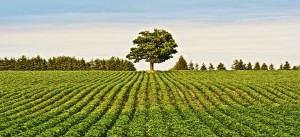Time for Action in 2015: Moratorium
2015 is the International Year of Soils and what better way to celebrate than to protect Ontario’s best agricultural land. We’re urging the Liberal government to preserve our rare farmland from urban sprawl, aggregate operations and other non-farming development devouring prime agricultural soil at an unsustainable rate.
Big changes in legislation and land-use policies start with small steps. So, we’re asking the government to begin this process by introducing a 10-year moratorium on new rezoning applications affecting Class 1 farmland, the best in the country. Let’s take the time to review and revise existing policies. Let’s make sure good things grow in Ontario for generations to come.
Below is a letter to Premier Kathleen Wynne and her government. Share it on Facebook and Twitter. Send it to Queen’s Park using this link:
Time for Action Letter & Contacts
Dear Premier Wynne and members of Cabinet,
I am writing to urge your government to make the protection of agricultural lands a top priority over the next four years. As you know, Ontario has the largest agri-food sector in the country, yet this $34-billion industry, its 740,000 jobs and our food security are at risk because of the lack of protection for prime farmland. It’s time for Ontario to preserve this strategic and perpetual resource, starting with a 10-year moratorium on all new rezoning applications on Class 1 farmland.
Each of the following ministries – Agriculture, Food & Rural Affairs, Natural Resources, Finance, Health, Economic Development, Municipal Housing and Affairs, Environment and Climate Change, and Tourism, Culture and Sports – touches on this issue. Whether it’s the effect of climate change on farmland, land-use policies that govern sprawl, locally-sourced meals served to tourists in downtown Toronto or the many jobs in the agri-food sector, these departments are involved. Yet, to date, there has been no co-ordinated effort among these ministries to preserve the best farmland so critical to our economy and well-being.
Your government has promised to introduce a Farms Forever program, similar to one that’s been operating in Pennsylvania for 25 years. That state has protected 500,000-acres of prime farmland for its $68-billion agri-food sector. Pennsylvania leads the U-S in this area; Ontario should do the same in Canada with Farms Forever, and quickly. According to the Ontario Federation of Agriculture we are losing up to 350-acres of farmland a day to non-farming development. This is unsustainable.
Your government has taken positive steps to recognize the importance of Ontario’s farmland to our economy and food security:
1) The introduction of the Local Food Act to promote local food and support our farmers.
2) A call to the agri-food sector to double its annual growth and create 120,000 new jobs by 2020.
3) The government’s response to a review of the Aggregate Resources Act by the Standing Committee on General Government:
“On the matter of aggregate extraction on prime agricultural lands, the government believes that there may be a need to go beyond the Committee’s recommendation to address concerns expressed by some of our agricultural stakeholders and through various public interest groups, about the need to better protect farmland.”
I strongly believe a 10-year moratorium on any new rezoning applications on Class 1 farmland would allow your government to take careful stock of the many threats to Ontario’s vital farmland, and examine whether government policies and legislation are properly addressing farmland preservation and local food production.
I am not alone in asking for the protection of the province’s best farmland. The Ontario Federation of Agriculture made a similar request to your government nearly a year ago. The Loblaw chair in Sustainable Food Production at the University of Guelph, Ralph Martin, says there should be no development allowed on any Class 1 and 2 farmland. Rural and urban Ontarians understand we must do more to preserve the land that feeds us. Our economic health, food security and survival depend on it.
Yours sincerely,
 Food & Water First
Food & Water First